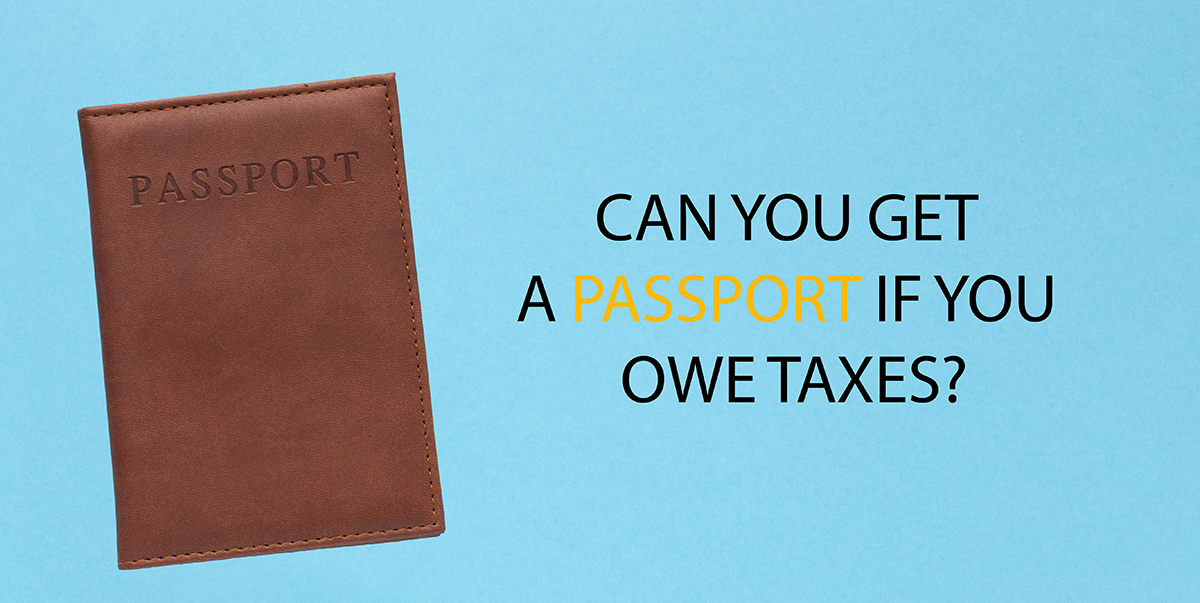Traveling abroad is an exciting prospect for many, but did you know that your tax status can impact your ability to obtain or renew a passport? The question, “Can I get a passport if I owe taxes?” is one that many Americans grapple with. Let’s delve into the intricacies of this issue.
Can You Get a Passport if You Owe Taxes?
The short answer is it depends on the severity of your tax debt. While in the past, the answer was mostly “yes,” recent laws have expanded the IRS’s power over passports. If you owe the IRS and aren’t on a payment plan, there are certain conditions under which your passport privileges might be restricted. However, if your tax debt is below the threshold set for “seriously delinquent” status, you can still obtain a passport.
The Steps Leading Up to Passport Denial
Understanding the sequence of events that can lead to passport denial due to tax debt is crucial. Here’s a breakdown:
- Notification from the IRS: Once the IRS determines that you owe “seriously delinquent” tax debt, they will send you a notice, typically the CP508C Notice.
- IRS Alerts the State Department: After notifying you, the IRS will inform the State Department of your tax debt status.
- Passport Application Processing: If you apply for a passport or a renewal after the State Department has been notified, your application might be denied or put on hold.
- Existing Passport at Risk: If you already have a passport, the State Department can limit its use or even revoke it entirely based on the information from the IRS.
- Opportunity to Resolve Debt: Before any drastic measures are taken, you will be given a chance to resolve the tax debt, either by paying it off or setting up a payment plan with the IRS.
How Is Seriously Delinquent Tax Debt Determined?
The term “seriously delinquent” might sound subjective, but it has a specific definition when it comes to tax debt.
Debt Threshold
Tax debt is considered “seriously delinquent” when it surpasses $59,000 (as of 2023). This amount includes the original amount owed, along with penalties and interest that have accrued over time.
Exceptions
Nonetheless, several exceptions determine how back taxes contribute to your delinquency status. If any portion of your tax debt aligns with specific categories, it might not be classified as seriously delinquent:
- Approved Installment Agreements: If you have an installment agreement that the IRS has approved, your debt won’t fall under the “seriously delinquent” category.
- Offer in Compromise: Debts that are part of an IRS-approved Offer in Compromise are excluded from being labeled as seriously delinquent.
- Innocent Spouse Relief: Any debts that are under suspended collection due to innocent spouse relief are not considered seriously delinquent.
- Collection Due Process Hearing for Innocent Spouse Relief: Debts linked to a requested collection hearing under the umbrella of innocent spouse relief are not included.
How to Determine Whether You Owe the IRS?
If you suspect you owe the IRS, it’s essential to confirm the amount. Individual taxpayers can call the IRS or use their online tool. If the IRS plans to take action against your passport due to tax debt, they will send a notice in the mail.
What Should You Do if You Owe the IRS and Need a Passport?
If you find yourself in a situation where you owe the IRS and need a passport, consider the following steps:
- Set up an installment plan with the IRS.
- Settle the debt through an Offer in Compromise or a settlement agreement.
- If you’ve received a notice of a levy or lien, request a Collection Due Process hearing.
- Seek “Innocent Spouse Relief” if applicable.
How to Avoid Passport Hold or Denial?
If you’re concerned about your passport being held or denied due to tax debt, consider the following proactive measures:
- Stay Informed: Regularly check your tax status. If you’re unsure about any potential debt, contact the IRS or use their online tools to verify.
- Set Up Payment Plans: If you owe taxes, don’t wait for them to accumulate. Set up an installment agreement with the IRS to pay off your debt over time.
- Seek Professional Help: Consider consulting with a tax professional or attorney who can guide you through the process, help negotiate with the IRS, and provide advice tailored to your situation.
- Respond Promptly: If you receive any notices from the IRS, address them immediately. Ignoring them can lead to more severe consequences.
- Stay Below the Threshold: While it’s best to pay off all tax debt, ensure that your debt stays below the “seriously delinquent” threshold to avoid passport issues.
FAQ
Can I Leave the Country if I Owe Back Taxes?
Yes, but only if your tax debt isn’t considered “seriously delinquent.” If you owe a significant amount, it’s wise to resolve your tax debt before making any international travel plans.
Do I Qualify for Passports if I Owe Taxes?
You can qualify for a passport even if you owe taxes, as long as your tax debt isn’t “seriously delinquent.” If you’re on a payment plan or have made other arrangements with the IRS, you can still obtain a passport.
Conclusion
Owing taxes doesn’t automatically disqualify you from getting a passport. However, if your tax debt reaches the “seriously delinquent” threshold, it can impact your ability to travel abroad. It’s crucial to be proactive, understand your tax status, and make arrangements with the IRS if necessary. Safe travels!
